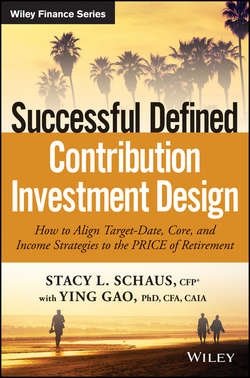Читать книгу Successful Defined Contribution Investment Design - Gao Ying - Страница 16
На сайте Литреса книга снята с продажи.
PART ONE
DC Plans: A Cornerstone of Retirement
CHAPTER 1
DC Plans Today: An Overview of the Issues
HOW TO APPROACH OUTSOURCING DC PLAN RESOURCES
ОглавлениеLevine told us that smaller plans will often end up with a prototype plan offered by a third-party administrator or a bundled-service provider; while larger plans may have a custom plan document but still use a third-party administrator, bundled-service provider, or independent recordkeeper. These administration providers will oftentimes manage the administration of the plan, handle all the day-to-day responsibilities, and make nondiscretionary recordkeeping decisions. Whether these providers are fiduciaries will depend on the exact circumstances of each situation, but “An advisor or consultant can play a key role in helping you figure out exactly what fees are being charged and what services are being provided by the recordkeepers and other providers.” Levine adds, “They can help you confirm and document that the fees your plan is paying are reasonable.”
The most common and typically the biggest role played by most advisors is in relation to the plan investments. In this case, the advisor can act as the fiduciary in the selection, monitoring, and retention of investment offerings for the plan. This includes vetting the managers, evaluating risk and return, and determining how the investments have done relative to peers and benchmarks. The advisor can either lead or help go through this process if the default plan fiduciary doesn’t have the time, resources, or skills to do this work internally. A plan might even hire the advisor to assume full control or discretionary oversight of the investments for the plan. In all cases, the plan fiduciary needs to define the breadth of responsibility as well as agree to the advisor’s fees. Says Levine, “Fiduciaries have a duty to properly appoint an investment manager. But once the decision is made, the risk is mostly shifted to the investment manager at that point (subject to a duty to monitor the investment manager).”
When we asked Levine what final words he had with respect to the changing role of plan sponsors and external advisors, he commented that “Too often, plan sponsors are bombarded from so many sides with information about these issues. Good advice and good support from outside parties doesn’t have to be overwhelming to plan sponsors and plan fiduciaries. In fact, it appears to be moving us in a good direction where, hopefully, it will advance the entire system’s objective as we move forward.”
